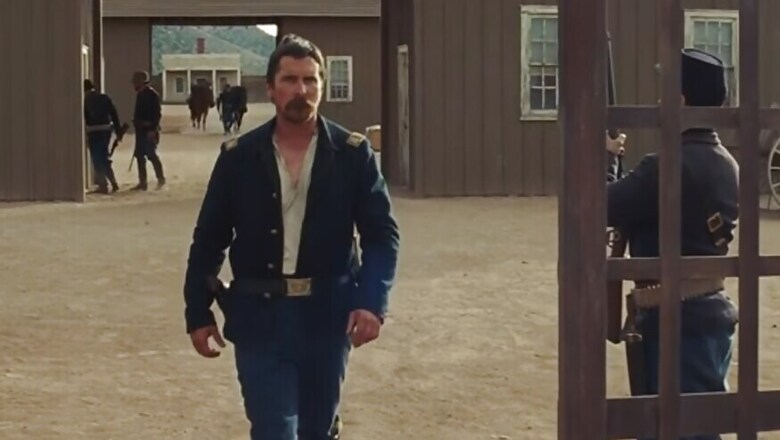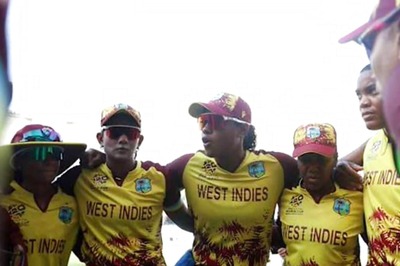
views
Once American actor and director quipped that the English have Shakespeare, the French have Moliere, and “we have Westerns”. Brought up on the romantic notion of the cowboy culture and with auteurs like John Ford, known for their alluring Western classical cinema, helmer Scott Copper created his Hostiles – which opened the Dubai International Film Festival on Wednesday evening.
Cooper has contemporised his movie, highlighting the racial divides which exist in his own America. “We know that the racial and cultural divide in America is growing wider by the day,” the actor-turned-director told the media recently. “And I hoped to possibly create a conversation about inclusion, because I think that’s what’s most needed in a polarised nation.”
But divisiveness is not confined to the US alone. It has existed in India – as elsewhere – and much to the consternation of many, one has been seeing such divisions grow and widen. But as Cooper added, his work was much more than a Western. “It is a humanistic look at grief and how we can come together as one”.
Hostiles is based on an original story (Missing) by the Academy-winning screenwriter, Donald E Stewart, and the plot unfolds in 1892. Christian Bale plays a legendary Army captain who escorts a dying Native (Red) Indian chief, Yellow Hawk, and his family through dangerous terrain. Bale's Captain Joseph Blocker hates Native Indians, and he has his reasons, but the journey across American plains soothes his anguished soul and helps him deal with his hatred for the tribe.
So, Hostiles may be seen as a serious exploration of the kind of racialism which existed in America – most explicitly witnessed in the US Army's brutality towards Native Indians.
The film begins with a bloody scene of an American family's massacre by savage Native Indians out to steal horses. And only Rosalee Quaid (Rosamund Pike) survives, her husband and children all shot dead by the marauding tribesmen.
Cut to an American prison, where we see a Native Indian, Yellow Hawk – once a terrifying killer of white men – now dying of cancer, and his last wish is to see his homeland of Montana. Blocker is given this task of escorting Yellow Hawk, and as much as the Captain hates his assignment and hates the Red tribe, he has no choice but to carry out the command. There are moments in the long journey on horseback when Blocker is tempted to carry out his own brand of justice. Quaid, who joins the group, is also thirsting for the Native Indians' blood, and Cooper infuses nail-biting tension into the narrative.
But yes, the movie is a trifle too long at over two hours, and the script does not give enough scope to flesh out the characters of the Native Indians. So, the film sometimes appears one-dimensional, and tends to slip into cliched pits.
But a more pertinent question will be, how effective was Hostiles as an opening work. A little too dark and a little too bloody, Hostiles seemed to reflect the unhappy days this world is passing through. Though, the end appears positive, Cooper's creation lacks a certain joy de vivre essential to set a movie festival rolling, nay flying high.
(Author, commentator and movie critic Gautaman Bhaskaran is covering the 14th edition of the Dubai International Film Festival )















Comments
0 comment